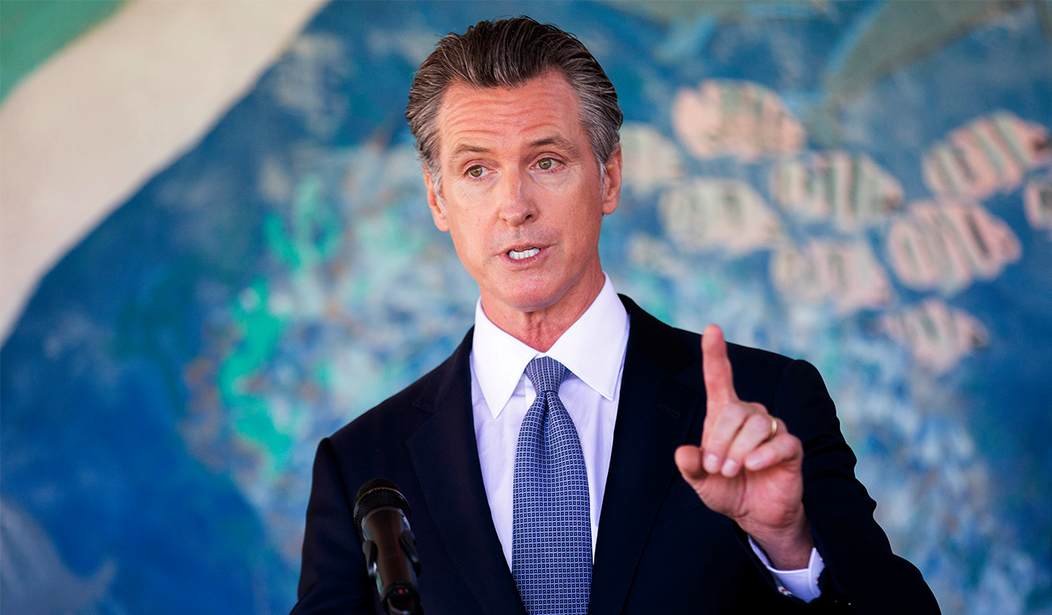Gavin Newsom may have just done his fellow governor, New York’s Kathy Hochul, a big favor.
This week, California’s Newsom vetoed legislation that would have imposed vague and unenforceable requirements on entities doing business with the state of California. The bill would have required companies that contract with the state to prove whether forest products were sourced from areas that contribute to deforestation, giving regulators unprecedented and arbitrary leeway to decide what products may fall into that category.
Big Green allies may have failed in California but they are already hard at work in New York State advocating for a similar measure. It will be an early test of newly minted Governor Kathy Hochul. Will she take a stand like Newsom or will she fall in line with the radical fringes of the Big Green Fundraising Machine?
Like in California, the New York version of the deforestation bill is backed by the deep-pocketed campaigners at Natural Resources Defense Council (NRDC) and the Sierra Club. For years, environmental activists have been hell-bent on stopping forest products imported from Canada, which is considered by most credible environmental organizations to be the gold standard for forest management. That’s because the Canadian government recognizes that harvesting trees for forest products is not deforestation. Natural Resources Canada notes that fewer than 0.02% of Canada’s forests are deforested each year, and forestry practices make up a small fraction of that. And there is a cultural and legal obligation from harvesters to respect natural lands by replanting all trees that are cut.
The California legislation had several other flaws Governor Newsom was polite enough to leave out of his veto message, particularly how the bill would have been impossible to enforce while leading to a decrease in the use of recycled forest products. If enacted, for example, the bill would prevent the state of California from procuring cardboard boxes made from recycled content unless the vendor proved that the original fiber did not come from a tropical deforestation region. This would mean that California could only buy newly-made cardboard with proper certifications, obviously harming the state’s sustainability efforts.
When issuing his veto, Governor Newsom cited the tremendous burden on companies doing business with the state, providing a hypothetical example of a vendor of soy-based products who would have had to disclose “the exact location where the soybeans were grown, who the farmer was, and where the soybeans were processed.”
Newsom could see what any reasonable person would—the legislation just wouldn’t work and it would be impossible to enforce: “This requirement would place a significant burden on businesses without impacting the stated goal of preventing tropical deforestation.”
Too often environmentalists make proposals that have nothing to do with solving problems but everything to do with the next fundraising effort. If it’s not forests, it’s meat, or cars, or raising families. Radical environmentalists are eager to make us feel bad about what we eat, wear, drive, and how we live. At times it seems like they would like us to feel bad for just existing.
None of this stops environmentalists from making false claims with outrageous demands for consumers. One recent NRDC campaign called “The Issue with Tissue” suggests that consumers forgo the cheap and soft toilet paper that’s sourced from Canada and opt for alternatives like bamboo tissue. Of course, that’s impractical for most families, and completely unnecessary since there is no deforestation happening in Canada.
It’s hard to overstate the embarrassment for NRDC, the lobbying behemoth of enviro groups, suffering a rebuke like this in deep-blue California, home to eco-enthusiasm galore and with the country’s most liberal governor. But if Governor Hochul’s staff is savvy enough, they might realize the full political liability that NRDC is becoming. In Canada, which has endured NRDC’s marauding for years, the organization is widely reviled across the full political spectrum. Despite requests to NRDC for dialogue from local mayors, indigenous leaders, trade associations, and provincial authorities, NRDC has utterly refused to even visit the local communities it is impacting. Even labor unions have soured on the group. Does that seem like an attractive political partner for a fledgling governor?
And why is Big Green more critical of the United States and Canada as opposed to, say, super-polluter China? The NRDC was among the first to praise the communist government for its recent announcement at the United Nations that they were moving out of the coal-fired power plant business — at least outside of China.
Newsom, well known for being a liberal stalwart, is sending a message to Big Green Enviros: Your proposed solutions should be obtainable and shouldn’t make life harder for ordinary Americans. Pay close attention to see whether Governor Hochul follows Newsom’s example or if she chooses to pander to the vague and overreaching ideas of the more extreme environmentalists.










Join the conversation as a VIP Member